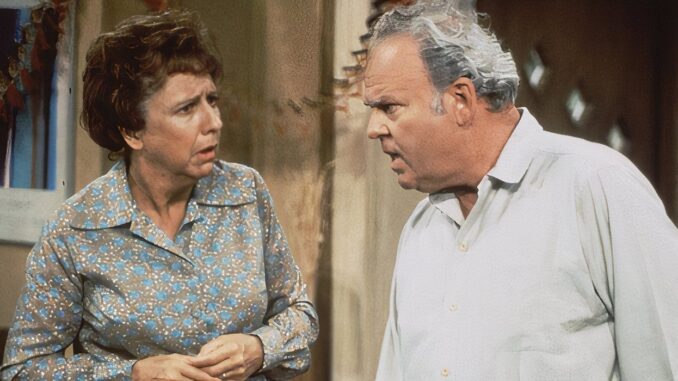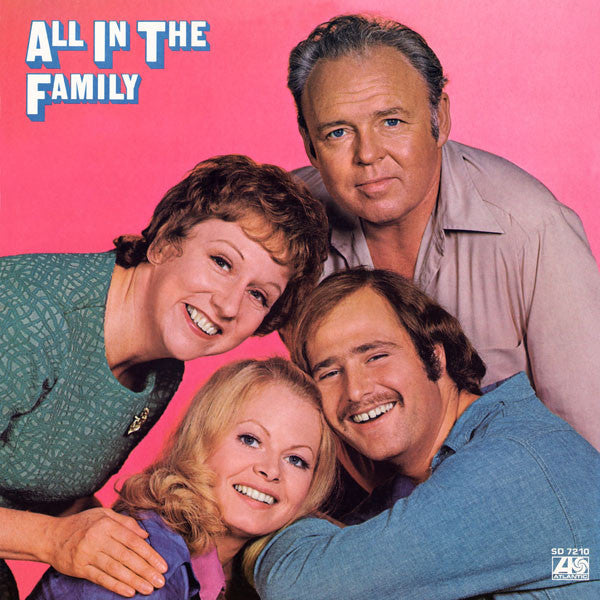
Remembering TV’s ‘Very Special Episode’ — and How It Paved the Way for Today’s Dramatic Comedies Like The Bear
Television has evolved significantly over the past few decades, from the slapstick sitcoms of the ’60s to the layered, emotionally complex dramas and comedies we watch today. However, one staple of TV’s golden era—what we now call the “very special episode”—helped shape the future of dramatic comedies, blending humor with intense, sometimes heart-wrenching moments. Shows like The Bear, which mixes both dark humor and deeply emotional storylines, owe a great deal to this often-overlooked piece of TV history. Let’s take a trip back in time to explore how these very special episodes were groundbreaking and how they paved the way for the complex, high-stakes storytelling of modern comedies.
The Birth of the ‘Very Special Episode’
The concept of the “very special episode” became popular in the 1980s and ’90s when television networks decided to tackle important social issues in a way that was both entertaining and educational. These episodes were often inserted into the middle of otherwise light-hearted sitcoms, providing an unexpected shift in tone and content. It was a formula that mixed humor with heavy topics like drug addiction, teen pregnancy, racism, death, and mental health, making these issues accessible to a wider audience.
Shows like Diff’rent Strokes, The Facts of Life, and Family Ties are prime examples of how the ‘very special episode’ became a defining moment for TV shows that were primarily designed for family-friendly entertainment. These episodes typically followed a formula: something would happen that completely disrupted the show’s regular comedic tone, leading to an emotional resolution by the end of the episode.
But what made these episodes “very special” wasn’t just the content—it was the way they balanced the humor with gravity, providing both entertainment and a deeper social message.
The Impact of ‘Very Special Episodes’ on TV Comedy
For decades, TV comedies were seen as lighthearted, feel-good fare designed to offer an escape from the realities of the world. The 1980s and 90s, however, began to blur the lines between pure comedy and drama with these special episodes, changing the genre forever. A great example of this is The Facts of Life episode where the characters address the topic of abortion, a heavy subject for a show that was mostly about four girls navigating adolescence in a boarding school.
These episodes didn’t just tackle taboo topics—they handled them in a way that invited empathy and reflection. The mix of humor with serious social issues made the episode’s eventual resolution all the more poignant, and viewers were left with a sense of emotional catharsis. In a way, these episodes proved that you could entertain and inform simultaneously, and they laid the foundation for the nuanced storytelling we see in today’s TV.
1. Family Ties and the Teenage Drug Problem
A standout example of a very special episode was the Family Ties episode titled “Just Say No,” which addressed drug use among teenagers. The show, which was primarily a light-hearted family comedy, became an unexpected platform for tackling the very real, very serious issue of drug abuse in America. The episode featured Alex P. Keaton (played by Michael J. Fox) encountering a classmate who was struggling with drugs. The episode took a departure from the usual comic antics, instead taking a more somber and informative tone.
The ‘very special’ aspect of the episode wasn’t just the serious subject matter—it was how the show balanced Alex’s humorous, often smug character with the gravity of the issue. The episode made it clear that even a character known for his light-hearted, sometimes self-absorbed demeanor had the capacity to engage deeply with a real-life issue. This blend of humor and seriousness would become a hallmark of future TV comedies.
2. Diff’rent Strokes Tackles Abuse
Another show that made its mark with a very special episode was Diff’rent Strokes. The episode “The Bicycle Man,” which aired in 1983, addressed the sensitive topic of child sexual abuse. The storyline involved Arnold (played by Gary Coleman) and his brother Willis being targeted by a seemingly nice man, who ends up attempting to abuse Arnold.:max_bytes(150000):strip_icc()/all-in-the-family_0-88069db060504852a9ff3029e2c30520.jpg)
While this episode was controversial and darker than anything typically seen in sitcoms at the time, it set a precedent for TV shows to take on challenging topics. Diff’rent Strokes didn’t shy away from the tough subject matter, instead choosing to educate viewers on the dangers of predatory behavior. The episode left a lasting impression on TV, as it showed that comedy and serious subject matter could co-exist and even elevate the discussion surrounding difficult issues.
3. The Facts of Life Confronts Abortion
Another landmark moment in TV’s exploration of social issues came in The Facts of Life, which aired an episode in 1980 about a character considering an abortion. This was an especially daring topic to tackle at the time, as abortion was, and still is, a highly charged political issue. In the episode, the girls’ friend, Natalie, grapples with the decision to have an abortion after discovering she’s pregnant.
This episode, like many others, blended humor with sincerity, showing how TV comedies could address life-changing, controversial topics in a way that could resonate with viewers of all ages. The show used the humor and camaraderie of the characters to provide emotional support for Natalie, making the discussion around abortion more accessible and empathetic.
From Very Special Episodes to Modern Dramatic Comedies: The Evolution
While these “very special episodes” of the past were mostly one-offs designed to address a particular issue, they paved the way for the more sustained, nuanced treatment of dark themes in contemporary TV comedies. Shows like The Bear, Ted Lasso, and BoJack Horseman owe a great deal to this tradition.
In modern TV, the blend of humor and drama is far more common, and shows regularly tackle complex emotional topics while still delivering the laughs. Take The Bear, for example. At its surface, it’s a show about a young chef trying to run his deceased brother’s struggling restaurant. But beneath the surface, The Bear dives deep into themes of mental health, trauma, family dysfunction, and self-doubt—all within the framework of an often funny, fast-paced workplace comedy. Just like the ‘very special episodes’ of the past, The Bear finds a way to incorporate moments of profound emotional depth into a show that doesn’t take itself too seriously.
The transition from sitcoms with one-off serious episodes to ongoing series that maintain a balance of humor and weighty topics reflects how far TV storytelling has evolved. We now expect characters to face real-world issues, but we also expect the moments of levity that make those stories digestible and relatable.
Why We Still Need ‘Very Special Episodes’ Today
Today’s TV shows—especially comedies—are more open and raw about discussing difficult topics, often blending humor and drama with greater finesse. But there’s still something uniquely impactful about the “very special episode” format, particularly when a show is able to tackle a single issue in one dedicated episode.
These episodes remind us that life is complicated and messy, and humor often exists alongside pain. While we may laugh at a sitcom’s absurdity, we also recognize that the challenges faced by the characters are sometimes deeply human. They teach us that comedy doesn’t always have to be light—it can be a vehicle for introspection, learning, and empathy.
Conclusion: TV’s Evolving Storytelling Legacy
The “very special episode” wasn’t just a quirky fad from TV’s past—it was an essential stepping stone that helped shape the dramatic comedies we watch today. These episodes proved that television could both entertain and inform, blending humor with weighty subject matter. In shows like The Bear, we see the fruits of this innovation, where lightness and darkness can coexist in a way that’s both entertaining and thought-provoking.
As audiences, we expect our TV comedies to do more than just make us laugh. We want them to engage with the complexities of life—mental health, family dynamics, love, and loss—while still offering moments of levity and humor. The legacy of the “very special episode” has carried forward, making it clear that humor and drama don’t have to be mutually exclusive. TV’s best comedies today continue to prove that.
FAQs:
1. What exactly is a ‘very special episode’? A “very special episode” is a TV episode, typically from a sitcom, that tackles a serious or controversial issue in a dramatic way, deviating from the show’s usual lighthearted tone.
2. Why did The Facts of Life and other shows have ‘very special episodes’? These episodes were designed to address important social issues, like teen pregnancy, drug abuse, and mental health, and present them in a way that was both entertaining and educational for a wide audience.
